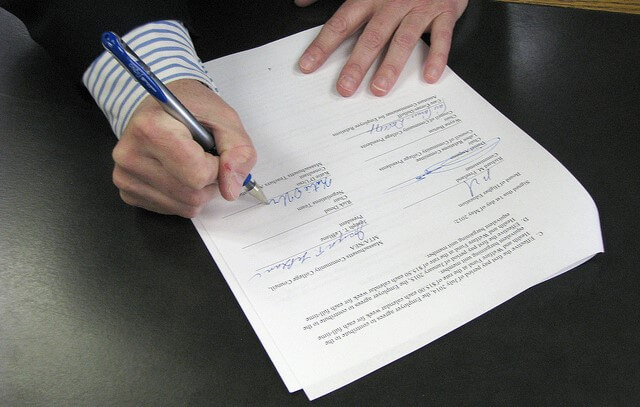
The first thing you must understand is that a home warranty is not the same as homeowner’s insurance. The latter being, coverage you must obtain upon purchasing a home to protect against fire, theft, and various other incidents. A home warranty, on the other hand, is a service contract that covers the major appliances and systems in your home, in the event they break down. The idea is that under this home warranty contract, your covered items will be repaired or replaced.
How Do I Get a Home Warranty?
A home warranty does not come automatically with a home when you buy it, like many manufacturer’s warranties that attach to their products. Nor is a home seller obligated to provide you with one. It is a completely voluntary purchase. Therefore, it is highly unlikely that you would have a home warranty without knowing about it.
One very common way to get a home warranty is during the sale and purchase of a home. Many sellers will buy home warranties for the homes they have for sale. They may do this to protect the home while it is on the market, in which case you can generally continue the coverage for the year after closing on the house. Or, the seller may purchase a home warranty for the buyer as an incentive for you to buy their house. Also, real estate agents will give home warranties to buyers as a thank you for working with them. This service contract takes effect on your behalf at closing and will typically be handled in closing costs.
If you have decided to buy warranty service for yourself during the home buying process, you will pay for it at closing. The home warranty service contract will then cover you for one year and is generally renewable by the homeowner. (You can also buy a home warranty at times other than closing, after you have purchased your home).
If you are buying a home, ask if there is an existing home warranty or if the seller intends to provide one. Then, ask to see the home warranty contract. This is important because home warranties only cover certain systems and appliances and can have multiple exclusions.
What Does a Home Warranty Cover?
A home warranty may cover any of the following:
- Air conditioning
- Plumbing stoppages
- Telephone systems
- Plumbing systems
- Electrical systems
- Attic and exhaust fans
- Sump pumps
- Central heating systems
- Hot water pumps
- Built –in dishwashers
- Heating and duct work
- Cooktops
- Built –in microwaves
- Water heaters
- Ovens
Some will cover more, some less. As with most contracts of this type, you can pay extra for more coverage, such as for pools, spas and septic systems. Be very careful to read the contract thoroughly. Most home warranties will not cover excessive wear and tear, pre-existing conditions, or where there has been improper maintenance. These exclusions obviously leave room for differences of opinion. Be sure you research the home warranty company to ensure that you will get the best coverage and customer service.

If an item cannot be repaired, the home warranty company may replace it. But don’t expect an upgrade. You should expect to get something comparable in function, regardless of the brand you had. Home warranties also have limits on how much they will pay out each year; and, you will certainly want to be aware of this.
How Much does a Home Warranty Cost?
Home warranties generally start between $300 and $500 but can go much higher, based on the coverage. You must weigh the potential risks against the money you will spend for the policy, as well as the value you will get for your money.
Older homes are more likely to have appliances and systems that will break down. So, it may be a good idea to have a home warranty in this instance. But, you probably wouldn’t want to buy a home warranty for a new or nearly new home, especially since items that are already covered under a manufacturer’s or other warranty will likely not be covered under a home warranty contract.
With every claim, you are expected to pay a service fee. These can range anywhere from $50 to $100 or more. Still, the cost of a single repair of a covered system break down could potentially pay for the whole year’s home warranty premium and then some. There is value in having the peace of mind of knowing that you will be covered for major repairs with only a service fee to be concerned with. After all, one major repair could wipe out your savings, especially right after you have purchased a home.
If you don’t know whether a home warranty is being provided with the home, you are looking to buy – ask. Ask the seller; ask your realtor. But find out. Then, if one is not being provided, do your due diligence and look at all your options and decide if purchasing a home warranty is right for you.
